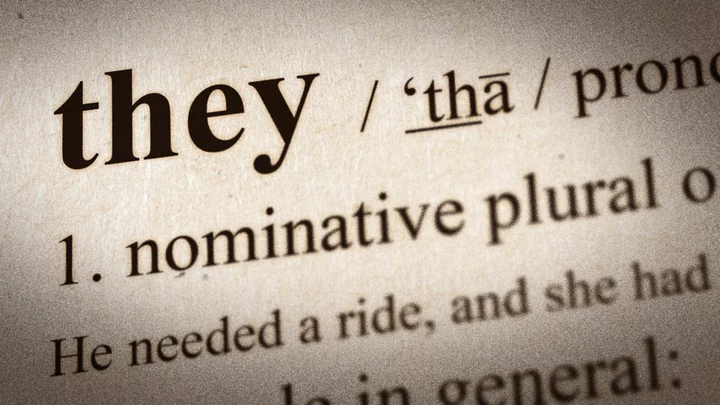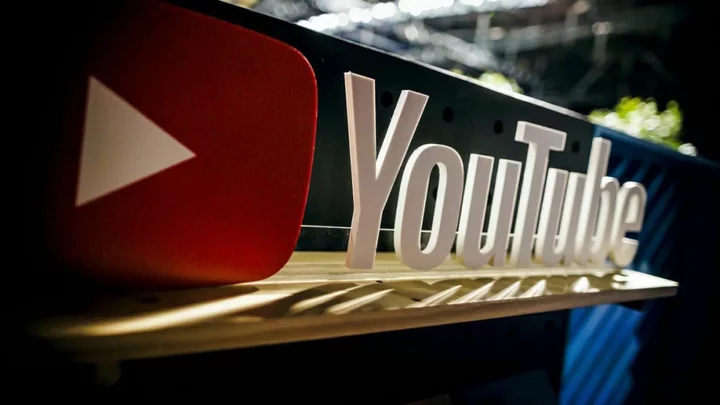The lexicographers and editors at Dictionary.com know a long-lasting trend when they see one.
For its latest update, the digital dictionary will now use the gender-neutral "they" and "their" in entries, replacing "she," "her," "he," and "his." In some cases, a pronoun will be omitted altogether if it's unnecessary.
The dictionary-wide change affects hundreds of entries.
For example, the definition of folk singer appeared with binary-gendered pronouns: "a singer who specializes folk songs, usually providing his or her own accompaniment on a guitar." The new version replaces the pronouns with "their."
The entry for volunteer, previously defined as "a person who voluntarily offers himself or herself for a service or undertaking," now appears without any pronoun as "a person who voluntarily offers to perform a service or undertaking."
SEE ALSO: An alt text guide to ensure everyone can enjoy your memesGrant Barrett, head of lexicography at Dictionary.com, told Mashable that the move reflects a broader shift in all forms of publishing that's been building for the last decade.
Barrett said that "they" is a signal to readers that any gender identity can be represented in an entry, including nonbinary and gender nonconforming.
"Using 'they' is not only good grammar and fits neatly into what English allows, but it also fits neatly into accepting and embracing the way more people see themselves," Barrett said.
The change does not direct readers to use "they" instead of "he" or "she" in their own speech. Existing entries will be updated over time.
Barrett acknowledged that certain readers may criticize the decision, particularly given conservative attacks on efforts to recognize and be fully inclusive of LGBTQ+ people.
"Language doesn't change everywhere, all at once, for everyone," he noted. "There's always going to be friction."
Aside from adopting "they," Dictionary.com is adding 566 new entries to its digital pages, including words that you might be surprised to learn haven't previously appeared: stress eating, greenwashing, decision fatigue, atmospheric river, and box braid.
Among the words that dominated internet and pop culture discourse in the last year, Dictionary.com has added nepo baby, generative AI, GPT, shower orange, and NIL, the abbreviation of name, image, likeness.
Barrett said that some linguistic online trends flame out fast, so new words often aren't added to Dictionary.com until they've "proven" themselves.
In the case of jawn, a word used largely in Philadelphia to describe, well, just about anything, Barrett said visitors may encounter the term on social media or in entertainment and wonder about its meaning. Ex: "Put some onions on those jawns or they'll be bland."
Barrett said his favorite addition of the update is jolabokaflod, an Icelandic tradition of gifting books for Christmas. He personally enjoys seeing #jolabokaflod Instagram posts of books given and received.
"If you're a book fan...you'll be delighted to find there's a word for this seasonal tradition of giving each other books at the holidays," Barrett said. "Plus, it's really fun to say."
For more Social Good stories in your inbox, sign up for Mashable's Top Stories newsletter today.









